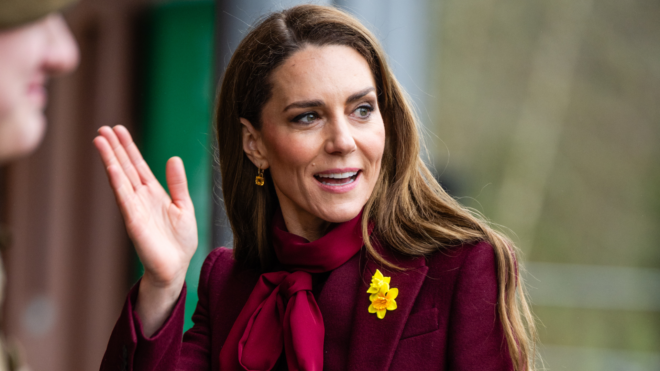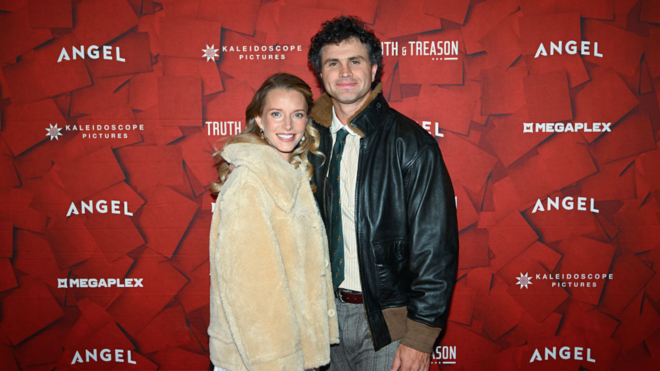
The morning I found out that my dad had passed away, in early April, from a monthslong battle with cancer, I was on the phone with my stepmother, telling her I would take a flight from Los Angeles, where I live. With the coronavirus warnings, I couldn’t risk my kids going to LAX to board two planes to travel many states away (not to mention doing it all again to get back to LA), but I would go myself.
Crying on the other end of the line, my stepmom told me no, that the last thing my father would have wanted was for me to risk getting the virus and possibly infecting my kids. “Your dad wouldn’t want that,” she insisted.
I knew she was right, but I was crushed. It felt so wrong, so disrespectful. I felt like a bad daughter, and to say I was devastated was an understatement.
I needed to do something, to get out
I needed to escape from the claustrophobia of being trapped and helpless.
So, I did what I always did as a child, when I visited my dad every other weekend in Tulsa, Oklahoma — I went for a drive. I wrapped the kids’ faces in makeshift masks, walked out to my car, and told them we were going to drive by the beach, to see the ocean.
In the summer of 1987, my dad and I drove across the country from Tulsa to Los Angeles in his 1964 Ford Fairlane

To me, it was an embarrassing old car, but he insisted that it would be cool in LA. I had my doubts, but I was also 12 — a pre-teen who preferred cassette players and push-button windows, not gear shifts on the steering wheel and too much chrome. “They appreciate old cars in California,” he assured me.
We passed through Oklahoma City, where I lived with my mom; through Amarillo, Texas; Albuquerque, New Mexico. We stopped at the Petrified Forest in Arizona and made a detour to see the Grand Canyon. (“Just a big hole in the ground,” my disappointed father said.) We finally turned off from I-40 to the 15, then to the 10, eventually meeting up with Route 66, aka Santa Monica Boulevard.
We drove straight to the beach
It was my first time seeing the ocean — any ocean — let alone setting foot in one. It had been a long, hot drive over several days, and I was excited to jump in and taste the salt water, just to prove that it was real. I was wearing my new, red Coca-Cola swimsuit, and I ran in, goosebumps popping along my skin from the cold water. I just kept running, farther and deeper.
But then, one of the ocean’s famously powerful waves — the first one I’d ever seen — knocked me down, showing me who really was boss. I fell down, rolled back, with water blasting up my nose. The sand scratched my skin and I became disoriented, a hot mess straight out of landlocked Oklahoma.
When the wave sucked back into deeper waters, and I opened my eyes — realizing with relief that I hadn’t died — I saw a lifeguard and my dad standing over me, asking if I was OK. Other than being stunned into silence and having the biggest wedgie of my life, I was fine.
After the lifeguard went back to his station, my dad broke out into laughter
Maybe it was the nervous laughter that comes after narrowly surviving something tragic, like a slight psychological break after avoiding a bad car accident. Or maybe it was the relieved laughter of a single dad who had just watched his only child struggle while not knowing how to save her — because he didn’t know how to swim.
Or maybe I just looked ridiculous
Whatever the truth was, that story has been told over and over, during family holidays and on other car rides to who knows where. “Ass over legs” or “ass over head” — some combination of words that undermined my tween, teen, and eventual adult sense of dignity. My dad would always just laugh and laugh.
I missed that laugh — when even he was surprised by how funny he found something. I missed his dark, dry humor, too.
Little did I know at the time that LA would eventually become my home

I would go to graduate school there. I would get married there and have two children, both of whom would see the ocean countless times before they could walk, let alone swim.
So, on the day he died, I went back to the beach in Santa Monica. The edge of the world was suddenly the closest I could come to him. I drove my LA kids by the empty, coronavirus-depleted sandy expanse to look from the car window at the water one more time, to tell that story one more time — and to say goodbye.




